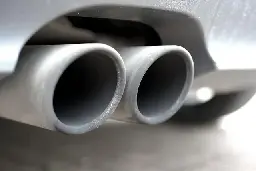Real-world CO2 emissions of cars are 20% higher than indicated. For plug-in hybrids they are 250% higher.
Real-world CO2 emissions of cars are 20% higher than indicated. For plug-in hybrids they are 250% higher.

First Commission report on real-world CO2 emissions of cars and vans using data from on-board fuel consumption monitoring devices

cross-posted from: https://feddit.it/post/6569904
EDIT: the article is from the European Commission. This thing comes from a serious study based on hard facts and data. Check this comment by @wooster, who reported the data
It's not a typo: plug-in hybrids are used, in real word cases, with ICE much more than anticipated.
In the EU, fuel consumption monitoring devices are required on new cars. They studied over 10% of all cars sold in 2021 and turns out they use way more fuel, and generate way more CO2, than anybody thought.
The gap means that CO2 emissions reduction objectives from transport will be more difficult to reach.
Thruth is, we need less cars, not "better" cars.

